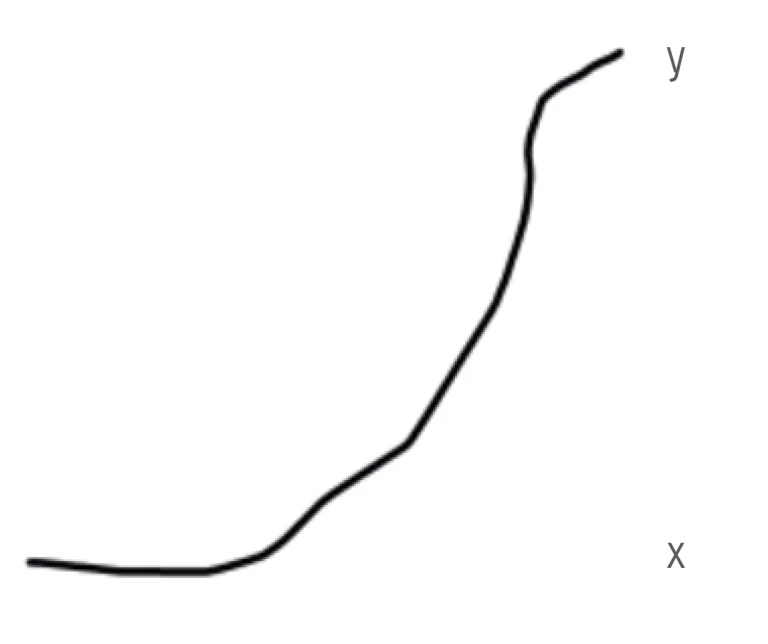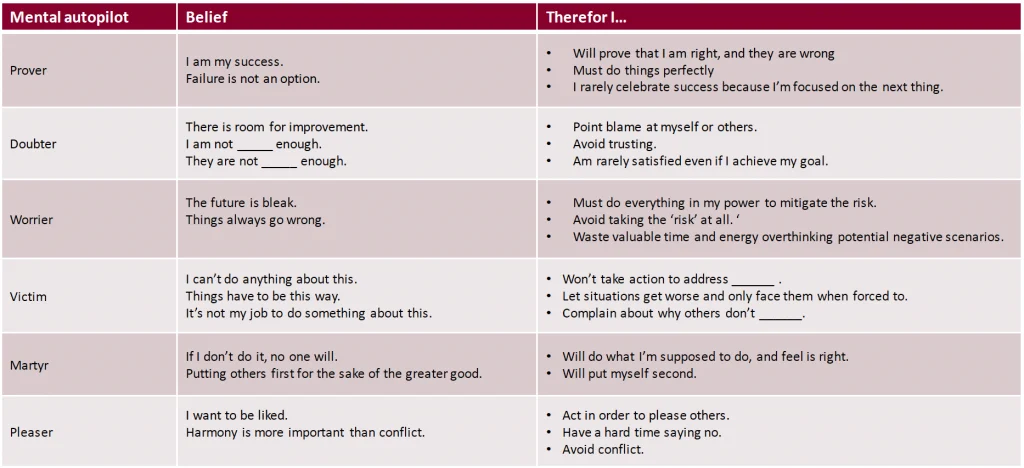
Share This Post
Paradoxical leadership is sometimes difficult to grasp. Therefore this article will give you the knowledge and three areas to develop for how to manage your paradoxical selves for the benefit of yourself, the ones you collaborate with and those you lead. The article is published in the Danish magazine: HR-chefen, but this is the version in english. If you prefer, you can read a summary in Danish here.
Before develing into it, imagine these two scenarios for your work plans:
- Scenario A: In Scenario A, you are invited to a meeting with your team, which is always fun to collaborate with.
- Scenario B: In Scenario B, you are invited to a meeting you are obliged to attend, but where you have no influence.
What was your reaction when you read Scenario A? Did your feelings lean toward the positive? Perhaps you felt excitement or joy at the thought of the fun you could have working with your team? If so, this is what I consider being in the green zone: you feel creative, energetic, and open.
How about Scenario B? Probably more negative? Maybe you felt anger, frustration, or neutral boredom at the thought of wasting valuable time in a pointless meeting? This, in contrast, is what I call being in the red zone: you feel neither alive nor open but rather tired, irritated, or unmotivated.
In the red zone, we are trapped in exaggerated and unrealistic thoughts and feelings. We lose our overview of what is really happening and stop hearing what others are saying. In this state of mind, we are often reactive, and our behavior reflects this unproductive thinking. We are mentally hijacked. The green zone is the opposite: we are goal-oriented, creative, and listening, and our behavior reflects this. Our self-image often reflect when we are in the mental state og the green zone. Many expect work behavior to be logical, consistent, and reflective, but it rarely is. You can read more about the red and green zone concept in my latest book: Power Barometer or in this article by my hand.
When many changes occur, for example, increased time pressure, there is a higher risk of being mentally trapped – and therefore also of exhibiting paradoxical behavior. When one is in the red zone, there is a risk that one’s behavior becomes paradoxical
The Time Paradox
You may have heard of Moore’s Law. The number of processors doubles bi-yearly. The effect is not just an exponential technological acceleration but also increased speed in communication, production, and the pace at which we live and lead. The same exponential curve reminds me of the wellbeing curve, just in the negative direction – not only is it a reality in Denmark but in many countries these days.
When I give lectures, I often ask participants: “Who in the room feels that there is plenty of time, that you have enough time for everything?” There are rarely any hands raised and this despite difference in age, gender, nationality, professional group, etc. Often the ones I talk to is leaders but, I can’t imagine them being the only ones feeling the time pressure.

Professor Adam Waytz from Kellogg School of Management published an article in the Harvard Business Review in 2023, where he encourages us to question whether we have succumbed to the busyness culture. Adam Waytz is as well-known in American circles as he is in Danish organizations. There is no doubt that in most international companies, we are encouraged to find balance. However, none of us feel like we have time.
Time pressure and increased speed, as we experience now, challenge our ability to handle complexity, which is most people’s reality. It makes it harder to succeed. If there is one thing that can hijack the mind and take people into the red zone, it’s the feeling of not succeeding. From there arises the potential for a downward spiral, which challenges us to create meaning, balance, collaboration, and good leadership in a complex context.
Would you like the newest knowledge and inspiration sent directly to you?
Then subscribe to our monthly newsletter
The Personal Paradox
When we are in the red zone, we lose our ability to be aware. Our behavior runs on autopilot. Another selve than the one we identify with, will drive our behavior. In our work within team development, we often see work archetypes or behaviors that, if left unchecked, can steer one’s behavior when one is hijacked and in the red zone.
Every selve covers some behavioral traits, that you can self-test in a quiz format that you can answer. A quiz we share for self reflection. This is personal; no one is forced to share. However, when I work in groups with increased psychological security, there is always someone who shares. This is where meaningful insights come, and paradoxical and inappropriate behavior are discussed in the conversations.

The paradox of all the selves
Understanding the paradox of having multiple selves requires us to first understand why many find this unnatural. The idea that we have only one self is a platonic one, from which Western culture is built. The idea of one self belongs to the dualistic worldview that dominates Western thinking. It is like Plato’s cave allegory, where there is one self and its shadow on the wall, or like in Christianity, where there is heaven and hell. However, dualism is not a universal truth.
On the contrary, there are many cultures where the self is a completely different image of the self, where we can have multiple selves – also paradoxical selves. One expects less logical and consistent behavior here. We are then forced to challenge our own understanding of the self, where the sense of the self is both logical and paradoxical. When we speak about the self, we use various research fields as points of reference. Therefore, we can’t just expect logical and consistent behavior from the self – as we can expect from literature – because being paradoxical is human nature.
Paradoxically enough, we are challenged by fluidity and the lack of consistency, which provokes paradoxical behavior.
What Should We Do?
Institutional theory and leadership literature have long been preoccupied with the paradoxes of leadership in relation to handling complexity. It is clear that instead of avoiding complexity, we must lean into it.
In leadership research, it has been found that when developing leaders and teams, we work with increased self-awareness to strengthen their understanding of the paradoxical nature of the self. When practicing, one uncovers one’s own autopilot behavior, which does provide an understanding of yourself as a paradoxical human with multiple selves – like we all are. Therefor we emphasize the importance of these 3 development areas to look into:
- Increase self-awareness
- Be inclusive of all your paradoxical selves
- Develop your EQ (emotional intelligence)
This will increase your chances for greater empathy and the ability to lead and collaborate with others.
We see how this insight often leads to greater openness, which modern leaders need in order to navigate the high level of complexity and the many paradoxes that are a natural part of our world.
If you want to learn navigate your paradoxical selves maybe you should consider us for your leadership development. We coach and train leaders in multinational companies. You can get in contact here: hello@josefinecampbell.com, +45 26361199 or take a closer look at our Leadership Community.
And remember that we help people in multinational companies developing leadership to realize dreams. If you would like to be updated with new articles and videos, sign up for our mailing list. Your mail is not shared with anyone and there are advantages to being on the list e.g., getting the first chapter of my book, Power Barometer – How to Manage Personal Energy for Business Success.
References
Campbell, Josefine (2020). Er du klar eller kapret? Bliv bedre til at samarbejde, lede og blive ledt. Pine Publishing. ISBN: 9788797505304.
DiMaggio, Paul J. and Powell, Walter W. “Chapter 4, The Iron Cage Revisited: Institutional Isomorphism and Collective Rationality in Organizational Fields”.
The New Economic Sociology: A Reader, edited by Frank Dobbin, Princeton: Princeton University Press, 2004, pp. 111-134. https://doi.org/10.1515/9780691229270-005.
Meyer, John & Brian Royan (1977). “Institutionalized Organizations, Formal Structure as Myth and Ceremony”. American Journal of Psychology, Volume 83, Number 2, University of Chicago, Sep. 1977. https://www.journals.uchicago.edu/doi/abs/10.1086/226550#.
Northoff, Georg et al., (2006). Self-referential processing in our brain – A meta-analysis of imaging studies on the self, NeuroImage, 2006 May 15;31(1):440-57. https://doi.org/10.1016/j.neuroimage.2005.12.002.
Wyatz, Adam (2023). The culture of Busyness, Organizations must stop conflating activity with achievement. From the HBR Magazine: Time Management March-April 2023. https://hbr.org/2023/03/beware-a-culture-of-busyness.
Zhao, Shuo et al., (2018). The Influence of Self-Referential Processing on Attentional Orienting in Frontoparietal Networks, Front. Hum. Neurosci., 15 May 2018 Sec. Cognitive Neuroscience, Volume 12 – 2018. https://doi.org/10.3389/fnhum.2018.00199.












